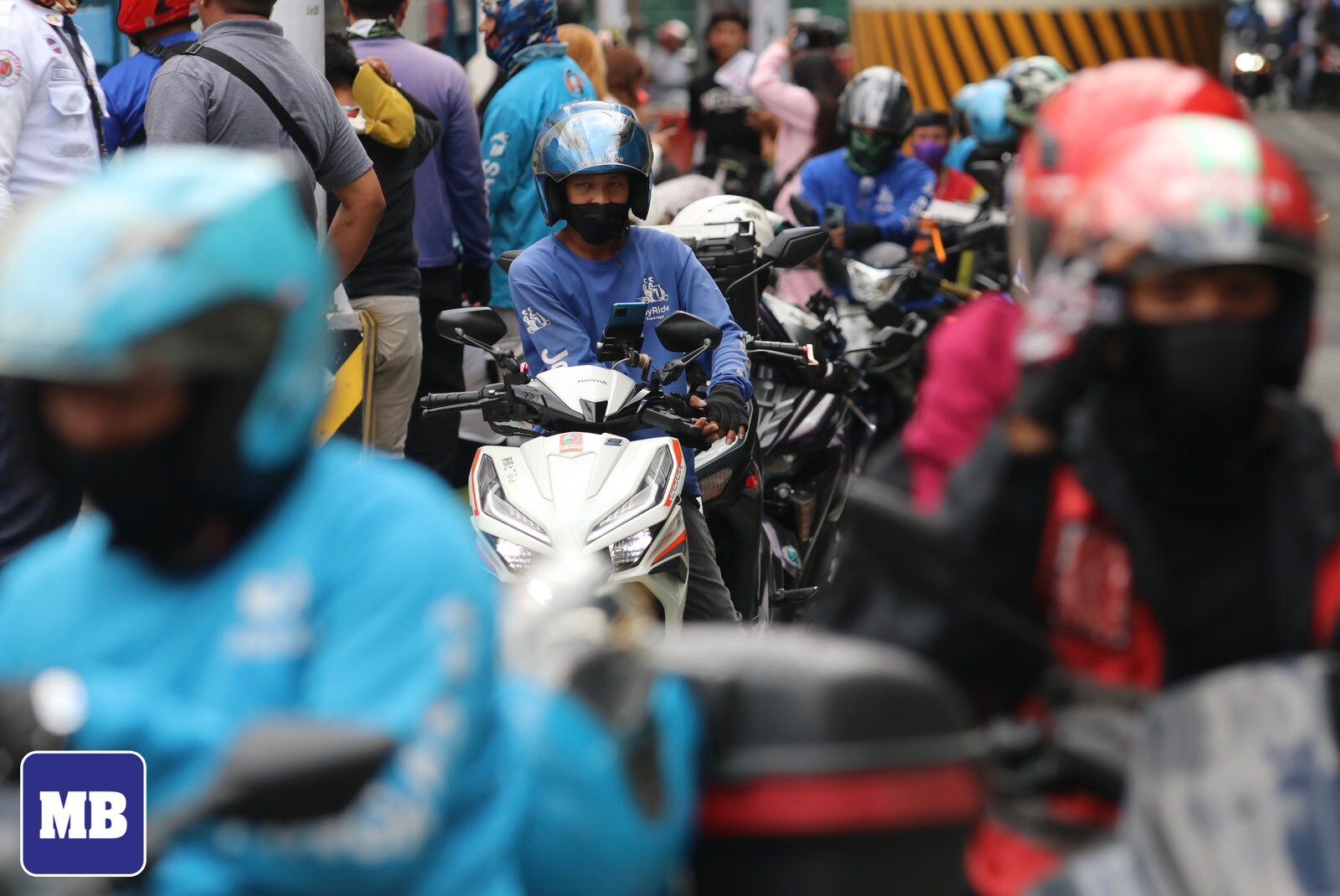House-passed bill to ensure motorcycle taxis' safety for commuters—Villafuerte
At A Glance
- Camarines Sur 2nd district Rep. LRay Villafuerte says the recently approved measure regulating the operation of motorcycle taxis assures the safety of commuters with this increasingly popular mode of public transportation.
 (Mark Balmores/MANILA BULLETIN)
(Mark Balmores/MANILA BULLETIN)
Camarines Sur 2nd district Rep. LRay Villafuerte says the recently approved measure regulating the operation of motorcycle taxis assures the safety of commuters with this increasingly popular mode of public transportation.
“The goal of legalizing motorcycle taxis is clear: to provide an option for transporting people and helping commuters get to where they need to be—with an assurance that these bikes are safe for commuters to take and ride around,” Villafuerte said in a statement.
House Bill (HB) No.10424, or the Motorcycles-for-Hire Act, was approved recently on third and final reading by the House of Representatives with 200 lawmakers voting in the affirmative, one in the negative, and zero abstentions.
Once enacted, the bill would amend Section Nos. 3 and 7 of Republic Act (RA) No. 4136, or the Land Transportation and Traffic Code.
Specifically, the measure will include motorcycles-for-hire in the definition of terms and in the classification of vehicles that would be required for registration with the Land Transportation Franchising and Regulatory Board (LTFRB). It also aims to recognize these motorcycle taxis as legitimate modes of public transportation.
“Ride-hailing apps have become a commuter's favorite phone application. With just a tap on the screen, a ride would be on its way to pick you up wherever you are and bring you to your destination,” said Villafuerte, president of the National Unity Party (NUP).
“And with ever-worsening traffic congestion especially in the streets of Metro Manila and other urban centers, motorcycles have become the preferred mode of transit for commuters as these bikes are relatively cheaper to hire and at the same time provide them with greater mobility,” he continued.
The lawmaker noted that motorcycles as a form of public transportation are not necessarily new to the country. He cited the “habal-habal”, which is especially popular in the provinces, that can fit up to five passengers through a makeshift extension seat attached to a motorcycle.
“The popular tricycles also use motorcycles to transport people, but are able to seat passengers in a sidecar instead,” he added.
As motorcycle taxis continue to be a more popular mode of transportation, HB No. 10424 mandates the Land Transportation Office (LTO) to establish a centralized database to ensure the accurate recording of violations and road crashes involving motorcycles-for-hire.
Local government units (LGUs) and relevant government agencies, which would be deputized by this measure, are tasked to report all violations of motorcycle taxis and the platform providers to ensure an accurate listing of all infractions for the application of penalties and other sanctions against violators.
The LTO is likewise required to publish quarterly and annual reports of such data on its website that shall be accessible to the public.
To ensure the safety of passengers, Villafuerte pointed out that the proposed legislation also tasks the LTFRB to require platform providers of motorcycle taxis to “obtain insurance coverage for both their drivers and passengers, as well as insurance to cover third-party liabilities”.
The motorcycles-for-hire must be duly registered with the LTO. The agency, however, shall first ensure the roadworthiness of these vehicles before their registration or renewal of their permits.
Another safety feature in HB No. 10424 includes the prohibition of any modification on any motorcycle-for-hire, except for the installation of the appropriate accessories, like the motorcycle bracket, top box, luggage carrier, saddlebag, step board or foot rest, crash guard, speed limiter or monitoring device.
The bill also sets a 60-kilometers-per-hour (60 kph) speed limit for all motorcycle taxis.